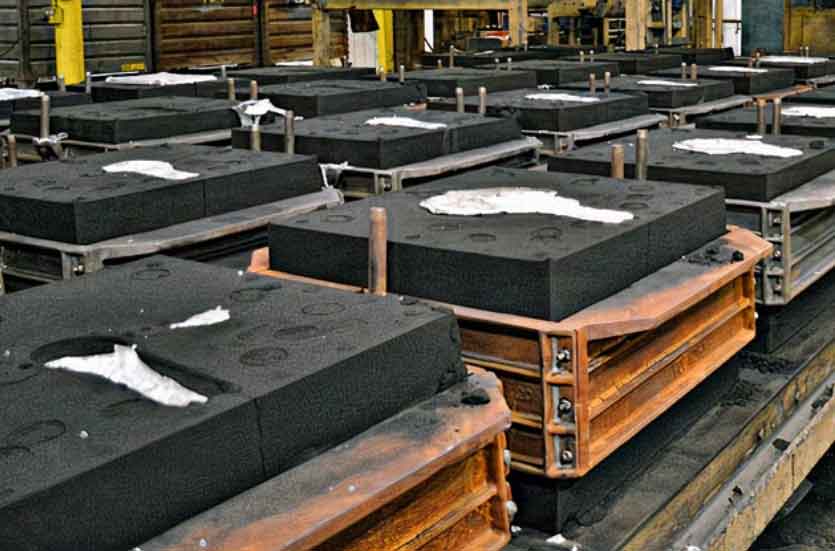
Resin sand casting is a versatile metal casting process that offers significant advantages for creating complex metal shapes and intricate components. This manufacturing method combines the benefits of traditional sand casting with the precision and flexibility of resin-based materials. Here’s how resin sand casting unleashes the potential of complex metal shapes:
- Detailed Molds: Resin sand casting allows for the creation of highly detailed molds with fine features and intricate designs. The use of resin-bonded sand results in smoother mold surfaces and better mold filling, ensuring the reproduction of intricate patterns and complex geometries.
- Versatility in Material Selection: Resin sand casting can accommodate a wide range of materials, including ferrous and non-ferrous metals, as well as alloys. This versatility allows manufacturers to produce complex shapes with various material properties, tailored to specific applications.
- Complex Core Creation: Resin sand casting enables the creation of complex cores, which are internal cavities or voids within the casting. These cores can form intricate shapes and hollow sections that would be challenging to achieve with other casting methods.
- Dimensional Accuracy: The precision of resin sand casting ensures excellent dimensional accuracy and repeatability. This is crucial for applications where tight tolerances and precise geometries are required.
- Reduced Defects: The use of resin-bonded sand helps minimize casting defects, such as sand inclusions, gas porosity, and surface imperfections. This results in higher-quality castings and reduces the need for post-casting finishing processes.
- Cost-Effectiveness for Prototyping: Resin sand casting is a cost-effective method for producing prototypes and small batches of complex components. The lower tooling costs and shorter lead times make it an attractive option for design validation and rapid iterations.
- Customization and Flexibility: Resin sand casting allows for the easy modification of molds, making it ideal for producing customized components with unique shapes or design variations.
- Suitability for Large Castings: Resin sand casting is well-suited for producing large metal castings with complex shapes. The process accommodates a wide range of casting sizes, making it versatile for various industrial applications.
- Process Automation: Automation and advanced technology can be integrated into the resin sand casting process, further enhancing its efficiency and consistency in producing complex metal shapes.
- Sustainable and Eco-Friendly: Resin sand casting promotes sustainable manufacturing practices as it reduces waste, uses recyclable materials, and minimizes energy consumption during the casting process.
With these advantages, resin sand casting has become a preferred choice for manufacturers seeking to create complex metal shapes efficiently, accurately, and cost-effectively. Its ability to handle intricate designs, produce high-quality castings, and accommodate various materials make it an essential process for a wide range of industries, including automotive, aerospace, energy, and machinery manufacturing.
